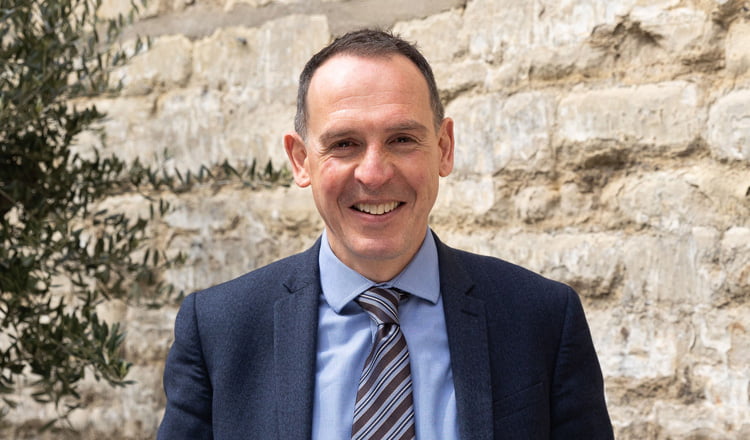Strategy formulation…and the art of England Rugby
Posted on 1st December 23
Kevin Gray, Chief Executive, Bath Building Society talks about the key lessons he believe businesses can learn from the England Rugby squad:
I have recently returned from the Rugby World Cup in Marseilles. Although it was a fabulous trip, one disappointment was the fact that I was forced to shout for ‘the team in white’ rather than for my beloved Scotland who had already exited the competition before I had even arrived in France. If only I’d bought my Scotland World Cup top a couple of weeks later, I would have got it for half the price! A niggling question from this tremendous tournament has remained with me. How did England manage to get so far when their recent form had been pretty diabolical? I think it was down to sound game planning and excellent teamwork. There are useful lessons in this for businesses trying to deliver on their strategies.
At Bath Building Society we have just completed the annual review of our business strategy. I am a great believer that a business with a clear strategy will always do better than one that has no plan as to where it’s going or what it’s trying to do.
As CEO I always like to ask ourselves three key strategic questions, these being ‘why are we in business?’, ‘what do we want to achieve?’ and ‘how are we going to achieve it?’. For the Society, the response to the ‘why?’ question is answered by a consideration of our social purpose as a business. As a mutual organisation, we have a bigger calling than solely the maximisation of profits for shareholders. We are in business to improve the lives of our customers by providing savings and mortgage products to help them grow their financial resilience and achieve their property-owning aspirations. For England Rugby, I suspect that their purpose is to provide sporting success and prestige to the English rugby community and to the wider nation as a whole.
With regards to the ‘what?’ strategic question, the Society has established five key visions of the future business that it wishes to be. These focus on achieving priorities such as financial success, improving productivity, improving the service and value to its Members, improving sustainability and support for its local Bath community, and investing in its colleagues. I am not Steve Borthwick, but I would hazard a guess that England Rugby’s vision included something relating to the lifting of the Webb Ellis Cup, or more realistically, getting as close to the final as was possible.
Having a plan for delivering a business vision is an important as knowing what the business wishes to achieve. For Bath Building Society, the ‘how?’ strategic question is answered through the creation of a detailed Operations Plan that influences the personal objectives of all 78 colleagues who work in the business. This Operations Plan details the projects and work that will have to be delivered over the next five years in order for the Society to achieve its future aspirations. England Rugby successfully pushed their team forward in the World Cup by excellent execution of individual game plans.
The big lesson from England’s surprising (but welcomed) advancement in the World Cup was the superb manner in which they played as a team just when this was required. The English squad worked together, all trusted each other, all supported each other, and all did their bit to push their team to achieve more than was expected. To deliver the most from our strategies, businesses need to work like England played i.e. as one team with one common focus.












